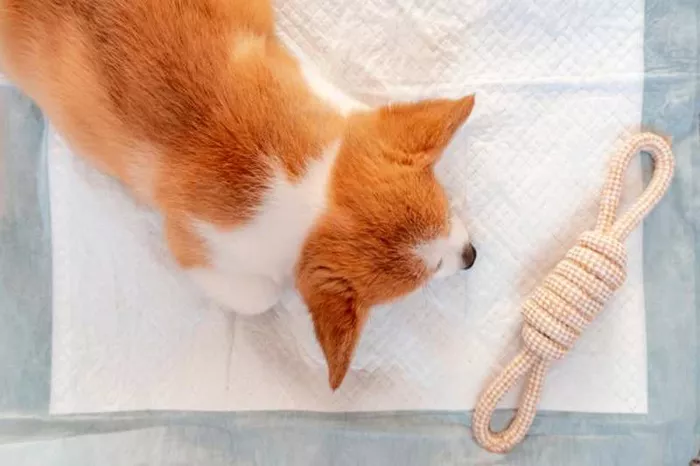Potty training is one of the first and most important lessons you will teach your Corgi. Corgis are intelligent, energetic, and eager to please. However, like any puppy, they need consistent guidance to learn proper bathroom habits. This guide provides a detailed, professional, and factual approach to help you train your Corgi successfully.
Why Potty Training is Essential
Establishing good bathroom habits early prevents accidents and builds trust. Corgis thrive on structure. A clear potty routine reduces confusion and helps your puppy feel safe and secure. Without training, your home can quickly become a stressful environment for both dog and owner.
Understanding Your Corgi’s Behavior
Recognizing Signs They Need to Go
Corgis will often show specific signs when they need to relieve themselves. Common indicators include sniffing, circling, whining, or suddenly stopping play. Recognizing these behaviors can prevent indoor accidents and build better communication between you and your dog.
Timing is Crucial
Puppies typically need to go after waking, eating, or playing. Take your Corgi outside:
- First thing in the morning
- After each meal
- Before bed
- Every 1–2 hours during the day
Establishing a routine based on these key moments sets your Corgi up for success.
Step-by-Step Potty Training Process
Step 1: Choose a Designated Potty Spot
Pick a specific area outside where you want your Corgi to go. Always take your puppy to this spot. Consistency reinforces the idea that this is their bathroom area.
Step 2: Use a Leash During Training
Keep your Corgi on a leash during potty trips. This prevents distractions and ensures they focus on the task. Stand quietly and wait. Do not rush or play during this time.
Step 3: Use a Cue Word
Choose a simple cue like “Go potty.” Say it softly while your Corgi eliminates. Over time, they will associate the word with the action. This is helpful for future situations when time is limited.
Step 4: Reward Immediately
As soon as your Corgi finishes, offer praise or a small treat. Immediate positive reinforcement helps the puppy connect the reward with the correct behavior.
Step 5: Supervise Indoors
Until your Corgi is fully trained, keep a close eye indoors. Use baby gates or a leash to keep them in sight. This limits accidents and allows quick intervention when needed.
Step 6: Confine When You Can’t Supervise
Use a crate or a small pen when you are not able to supervise. Dogs naturally avoid soiling their sleeping area. This teaches bladder control and builds a routine.
Step 7: Clean Accidents Properly
Use enzyme-based cleaners to remove all traces of scent. Standard cleaners do not eliminate odor cues and may encourage repeat accidents. Avoid scolding, which can create fear or confusion.
Helpful Tools for Success
Crate Training
Crate training supports potty training by teaching your Corgi to hold their bladder. Make sure the crate is not too large. It should be just big enough for standing, lying down, and turning around.
Puppy Pads (Use with Caution)
Puppy pads may confuse your Corgi if used inconsistently. Use them only when outdoor access is impossible. Gradually transition from pads to outdoor potty training when conditions improve.
Common Potty Training Challenges
Regression
Sometimes a Corgi may regress, especially during teething or changes in routine. Stay calm, return to basics, and reinforce the structure. Regression is normal and can be overcome with patience.
Distractions Outside
Corgis are curious. They may get distracted by noises, smells, or people. Minimize distractions during potty time. Stand still, avoid talking, and give them time to focus on the task.
Stubborn Behavior
If your Corgi seems uninterested in pottying, try longer walks or adjusting the feeding schedule. Sometimes it takes a few tries before they’re ready. Be patient and avoid punishment.
Feeding and Potty Schedules
Consistent Feeding
Feed your Corgi at the same times each day. Consistent feeding leads to consistent potty patterns. Puppies usually need to go within 15–30 minutes after eating.
Monitor Water Intake
Provide fresh water during the day, but reduce access 2 hours before bedtime. This helps prevent overnight accidents and improves bladder control.
How Long Does Potty Training Take?
Most Corgis learn basic potty habits within 2 to 4 months. Full reliability may take longer. Every dog is different. Age, temperament, and prior experiences all play a role in training speed.
Signs Your Corgi is Fully Trained
- They go to the door or signal when they need to go
- No accidents indoors for at least one month
- They respond to cue words
- They wait patiently during crate time
Celebrate these milestones. They mark your dog’s growing confidence and your success as a trainer.
Final Tips for Successful Training
- Be consistent with schedule and language
- Stay calm and patient
- Keep training sessions short but frequent
- Use positive reinforcement every time
- Adapt your strategy to suit your Corgi’s unique behavior
Conclusion
Potty training your Corgi takes time, patience, and consistency. By following the clear steps in this guide, you will build a strong foundation of trust and good habits. Your Corgi will grow into a well-behaved, confident companion. Remember, every success starts with one small, consistent action.
Related topics:
Governor Kay Ivey Welcomes Huntley, New First Dog of Alabama
How Much Is a Corgi Australian Shepherd Mix?


